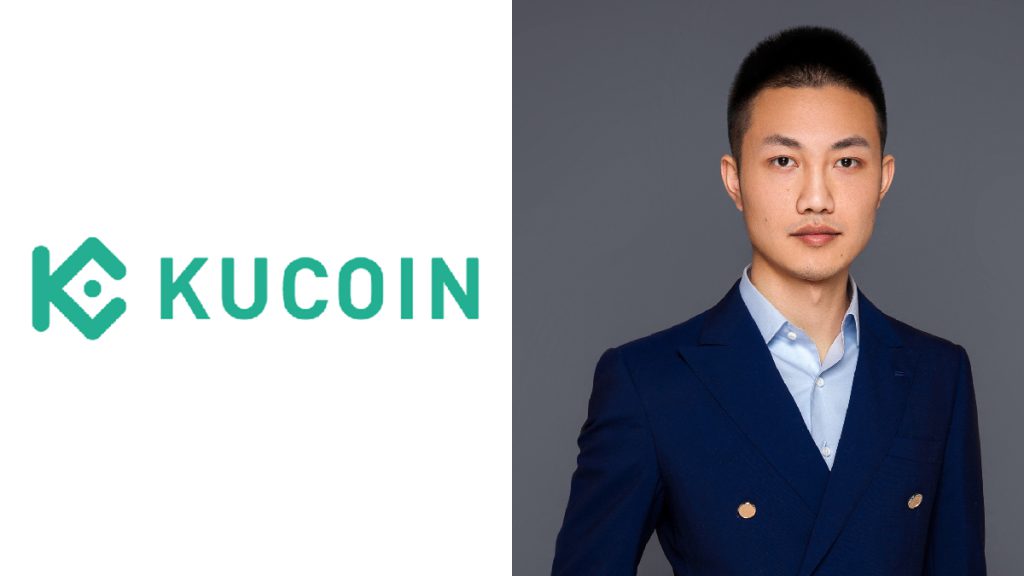In May, crypto exchange KuCoin raised US$150 million in its pre-Series B funding round, bringing its valuation to US$10 billion. The funding was led by Jump Crypto and included other investors such as Circle Ventures, IDG Capital, and Matrix Partners.
Although KuCoin is known primarily for its exchange services — with over 600 coins listed and around US$2 billion recorded in daily trading volume — it’s now looking to venture into other areas of blockchain technology. This includes exploring play-to-earn games, NFTs and decentralised finance (DeFi) protocols.
Here’s a look at how Singapore-founded company KuCoin rose to become a ‘unicorn’ and one of the largest crypto exchanges in the world.
How did KuCoin start?

The idea behind KuCoin was first dreamt up in 2013 by two of the company’s co-founders, Michael Gan and Eric Don. At a time when cryptocurrency had only just begun to emerge, the two were among the first to realise its potential.
As they explored the field, they found it extremely tedious to buy and sell crypto. Even the largest trading platform at the time, Mt. Gox, was fairly tricky to navigate. Determined to solve this problem, Gan and Don set out to code their very own crypto exchange.
It would be another four years before KuCoin’s exchange saw the light of day. Established in Singapore in 2017, the platform raised US$27.5 million through its initial coin offering (ICO).
Investors were able to buy the KuCoin (KCS) cryptocurrency, which was presented with the following incentive: 50 per cent of the revenue generated on KuCoin through trading fees would be distributed among KCS holders. This continues to hold true today.
? $KCS Bonus Daily Report – Feb 6 ?
— KUCOIN (@kucoincom) February 6, 2021
? #KCS hit a one-year high of $1.53 today. Hold as little as 6 KCS and you will get daily bonus! pic.twitter.com/W2Es937L7a
Within three months, Kucoin had over 300,000 registered users — a rate of growth which was almost unprecedented at the time in the crypto industry.
Given its success, the platform held its first equity funding round soon after. A total of US$20 million was raised, primarily from IDG Capital and Matrix Partners, both of which participated in KuCoin’s most recent funding round too.
How is KuCoin different from other crypto exchanges?
Dozens of new crypto exchanges have been established over the past two years, but KuCoin has managed to keep growing at a steady rate. In December 2021, the platform reached a user base of 10 million people.
One of the factors which sets KuCoin apart is its focus on altcoins. The platform brands itself as the ‘top altcoin exchange’, offering hundreds of crypto coins which can’t be found on other exchanges.
Listing standards vary between platforms, but many centralised exchanges only offer established cryptocurrencies with large market caps.

For users looking to speculate on lesser-known coins, this can be an inconvenience. They’re forced to transfer their holdings and use a decentralised exchange to buy their preferred altcoins. KuCoin helps address this problem through its wider range of offerings.
Another aspect which helps KuCoin stand out is its focus on community. Through its social trading feature, the platform allows users to interact with community leaders, influencers, and other investors who have similar trading preferences.
KuCoin CEO Johnny Lyu, who is also the co-founder, believes that this is integral to mass crypto adoption and something which has often been overlooked.

“Most practitioners in the crypto industry were focusing on building better tools to improve the interaction between humans and protocols,” Lyu said in 2021. Facilitating interactions between humans wasn’t seen as a priority.
“This has led to the increasing educational costs and slow pace of popularisation of the industry, hence creating obstacles for mass adoption.”
Where does KuCoin go from here?
As blockchain technology continues to debut new utilities, KuCoin is branching out from its exchange services. The platform has been looking into DeFi, NFTs and the metaverse since 2020, and plans to delve deeper with its latest round of funding.
KuCoin Labs, which was established in 2021, is the company’s research institution dedicated to identifying promising crypto projects and helping them achieve sustainable growth. Armed with a US$50 million fund, it has worked with notable projects such as Bloktopia, Antimatter, and Star Terra.
KuCoin #NFT Marketplace – Windvane @kucoinwindvane & KuCoin Ventures @KuCoinVentures Launch a $100 Million Creators Fund to Empower #Web3 Universe
— KUCOIN (@kucoincom) April 19, 2022
Over on the NFT side of things, KuCoin announced its US$100 million ‘Creators Fund’ in April, which will be overseen by its venture capital arm, KuCoin Ventures and NFT marketplace, Windvane.
The fund is dedicated to incubating early-stage NFT projects which cover fields such as art, sports, GameFi, and Asian culture.
“At the current stage of KuCoin’s expansion of the Web 3.0 and NFT fields and deepening the KuCoin ecosystem, the launch of the US$100 million ‘Creators Fund’ will undoubtedly bring a strong impetus to our development process,” says Lyu.
Featured Image Credit: KuCoin / Johnny Lyu










